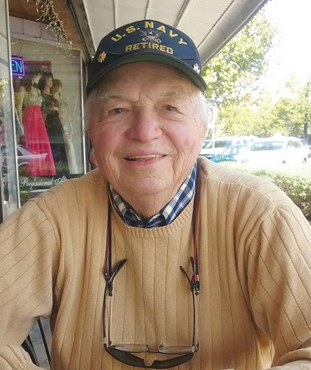
If you want to get a long-range view of Gilroy, sit down for a chat with City Council candidate Paul Kloecker.
The three-time councilman—he served from 1983 to 1995—and past mayor pro tempore, has seen first-hand how Gilroy has changed over the years, and he wants to use his experience to address key issues in the city he’s called home since 1980.
Chief among those issues for the Vietnam veteran and retired U.S. Navy officer are public safety staffing, improving business coordination, sidewalk and street repairs, getting downtown unreinforced masonry buildings open for business and addressing challenges to the city budget to maintain Gilroy’s fiscal integrity.
“I’d like to see sound decision-making and good investigation of issues to arrive at good decisions. I think that is my forte.”
A regular at City Council meetings, which he recommends more people attend, Kloecker is also a volunteer at Gilroy Gardens and member of the Gilroy Exchange Club, Elk’s Lodge and Sunrise Rotary.
Remembering the heavy traffic that once barreled through Gilroy’s downtown before it was rerouted to Highway 101, Kloecker said he was happy to see the district on an upswing, noting the crowds that attended downtown events like the Fifth Street Live summer concert series and recent Tamal Festival.
“All of those gatherings mean that people are really interested in downtown,” he said.
Things like streetscape improvements, the Downtown Specific Plan and zoning changes, he said were necessary to get the district moving forward, but there are challenges.
“It’s not easy at all, namely because of the need for funding.”
Describing himself as a “teamwork person,” Kloecker said there needs to be teamwork on the City Council, something which he said is sometimes lacking, and teamwork amongst the organizations that are tasked to advance the city’s agenda in the region.
“The Chamber of Commerce, downtown people, Gilroy Gardens, Visitor’s Center, various stakeholders—no matter who it is, there has to be teamwork among all of them,” he said.
A first step, he said is carrying on the work started by former mayor Don Gage and getting the various stakeholder organizations to create annual strategic plans that align with the city’s own.
“We always had an annual retreat and goal-setting but the way they are doing it now is very detailed, methodical and holds people to account.”
He added: “If we are all operating together, that is what synergism is all about. And when there are instances when they are not working together, who is the loser? Everyone.”
As someone who has served on the Parks and Recreation Commission, and is currently vice chair of the Planning Commission, Kloecker is a fan of public input and is not afraid to tell developers to hold neighborhood meetings about a proposed project.
“When projects come up for review on the commission one of the key questions we ask developers and city staff is, ‘Have you held a neighborhood meeting?’ That is vitally important. That yields good results.”
Kloecker was on the Planning Commission last year when the ill-fated 721-acre mostly housing proposal for land just north of Gilroy came up for consideration.
The proposal, later called Rancho Los Olivos during an equally ill-fated rebranding effort, would have added 4,000 housing units to the city over a period of many years.
Kloecker, along with all of the commissioners, voted against it because he did not agree with the way it was pushed through the city’s development review process.
“It was just happening too quickly,” he said. “Not that I disagree with the end result. We also had a lot to read at that time. We had three three-inch binders of material, including the environmental impact statement to read, and all within a week to 10 days. We even got paperwork the day of the meeting. That is really unusual. Very unusual.”
But the idea of the city expanding northward was not new.
“When I served on City Council before, we always thought that area would be devoted to the city’s expansion and housing.”
As for Measure H, which he acknowledged was started by the public anger surrounding the 721-acre proposal, there is no need for it because the proposal is no more.
“When you take away the genesis, you don’t need Measure H. Major land-use decisions should be made by elected representatives, which should be elected very carefully. They are the ones that will go through those 3-inch binders. I can’t imagine that most voters would take the time or interest to do that. Then there are those that say the council can’t be trusted, well, that’s why we have elections.”












